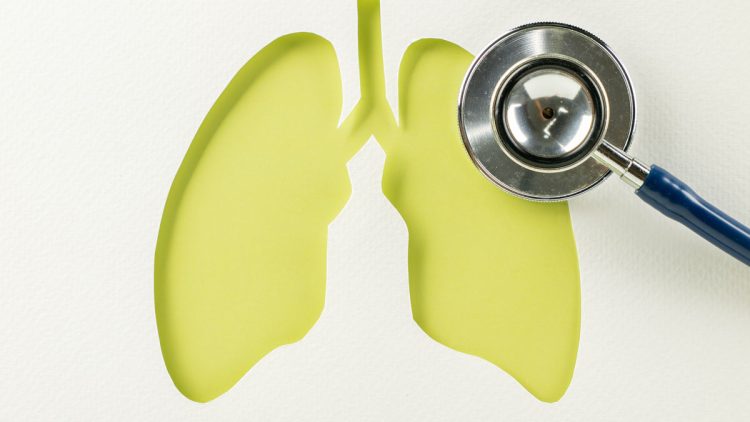What is COPD?
COPD, or chronic obstructive pulmonary disease, is in reference to a class of diseases that cause breathing hindrance and breathing-associated issues. This can include emphysema and asthmatic bronchitis. COPD can make breathing challenging for the sixteen million American people that have this disease. Millions more Americans experience COPD; however, they have not been diagnosed and are not receiving treatment. Even though COPD cannot be cured, it can be treated.
What are the symptoms of COPD?
Symptoms of this disease can comprise of:
- Repeated wheezing or coughing.
- Excessive phlegm, sputum or mucus, production.
- Shortness of breath.
- Problems taking deep breaths.
Who has COPD?
Chronic lower respiratory disease, basically COPD, was the 4th leading cause of death in the US in 2018. Just about fifteen-point-seven million American people (six-point-four percent) have reported that they have been diagnosed with the disease. More than half of adults with low pulmonary function were unaware that they had this disease, so the real number might be higher. The below groups were more inclined to report this disease in 2013.
- Those aged 65 – 74 years and 75+ years.
- Alaska Natives/ American Indians and multi-racial non-Hispanics.
- Those that were unemployed, retired, or unfit to work.
- Those with lower than a high school education.
- Those that got divorced, were widowed, or separated.
- Present or former smokers.
- Those with a history of asthma.
What causes COPD?
In the US, cigarette smoke is a key aspect in the progression and development of COPD. Exposure to air contaminants in the home and place of work, genetic aspects, and respiratory infections additionally plays a role. In the rest of the world, the quality of indoor air is believed to play a more significant role than it does in the US. People need to try to avoid inhaling cigarette smoke, home and workplace air contaminants, and respiratory infections to hinder the development COPD. Early discovery of this disease might change its direction and progression.
What are the difficulties or impacts of COPD?
In comparison to adults without COPD, those with COPD are more likely to:
- Have activity restrictions such as difficulty walking or going up stairs.
- Be incapable of working.
- Have growing confusion or memory loss.
- Need specialized equipment such as portable oxygen tanks.
- Have more ER visits or overnight hospital visits.
- Not engaging in social activities such as eating out, going to houses of worship, going to group occasions, or meeting up with neighbors and/or friends.
- Have depression or other mental or emotional ailments.
- Report an acceptable or poor health standing.
- Have other chronic diseases such as arthritis, asthma, diabetes, congestive heart failure, coronary heart disease, or stroke.
How is COPD diagnosed?
A straightforward test, known as a spirometry, can be used for measuring pulmonary—or lung—operation and identify this disease in anyone with breathing issues.
Treating COPD?
Treating COPD involves a thorough and comprehensive assessment by a physician. COPD treatments can relieve symptoms, reduce the frequency and severity of flare-ups, and increase tolerance to exercise. Treatment alternatives that your physician might consider include:
- Quit smoking. For those that smoke, the most important element of treatment is smoking stoppage.
- Avoid cigarette smoke and other air contaminants at home and at work.
- Ask your physician about pulmonary disease treatment, in which is a personalized treatment program that teaches COPD control to enhance the quality of life. Programs might include strategies that teach people how to breathe better and preserve their energy, in addition to providing advice on diet and exercise.
- Take medication. Symptoms like wheezing or coughing can be treated using medication.
- Prevent lung infections. Lung infections can cause severe issues in those with COPD. Certain vaccines, like pneumococcal and flu vaccines, are especially important for those that have COPD. Respiratory infections need to be treated using antibiotics, when appropriate.
- Utilize supplemental oxygen. Some people might need to utilize a portable oxygen tank when their blood oxygen levels are decreased.
Vista Winds Is An Upscale Retirement Community Located In Peoria, Arizona
If you are doing research about retirement communities in Peoria, Arizona, Vista Winds Retirement Home should definitely be on your list. Vista Winds offers retirement living at its finest. We have a rich calendar of activities, meals prepared by a Chef and caregivers on staff 24 hours a day for your health and safety. We offer award winning independent living, assisted living and memory care services. Come tour our community to see how we are a step above the rest and how easy it is to Make Yourself at Home! Vista Winds is surrounded by amazing views and our resort style property will be sure to impress!

